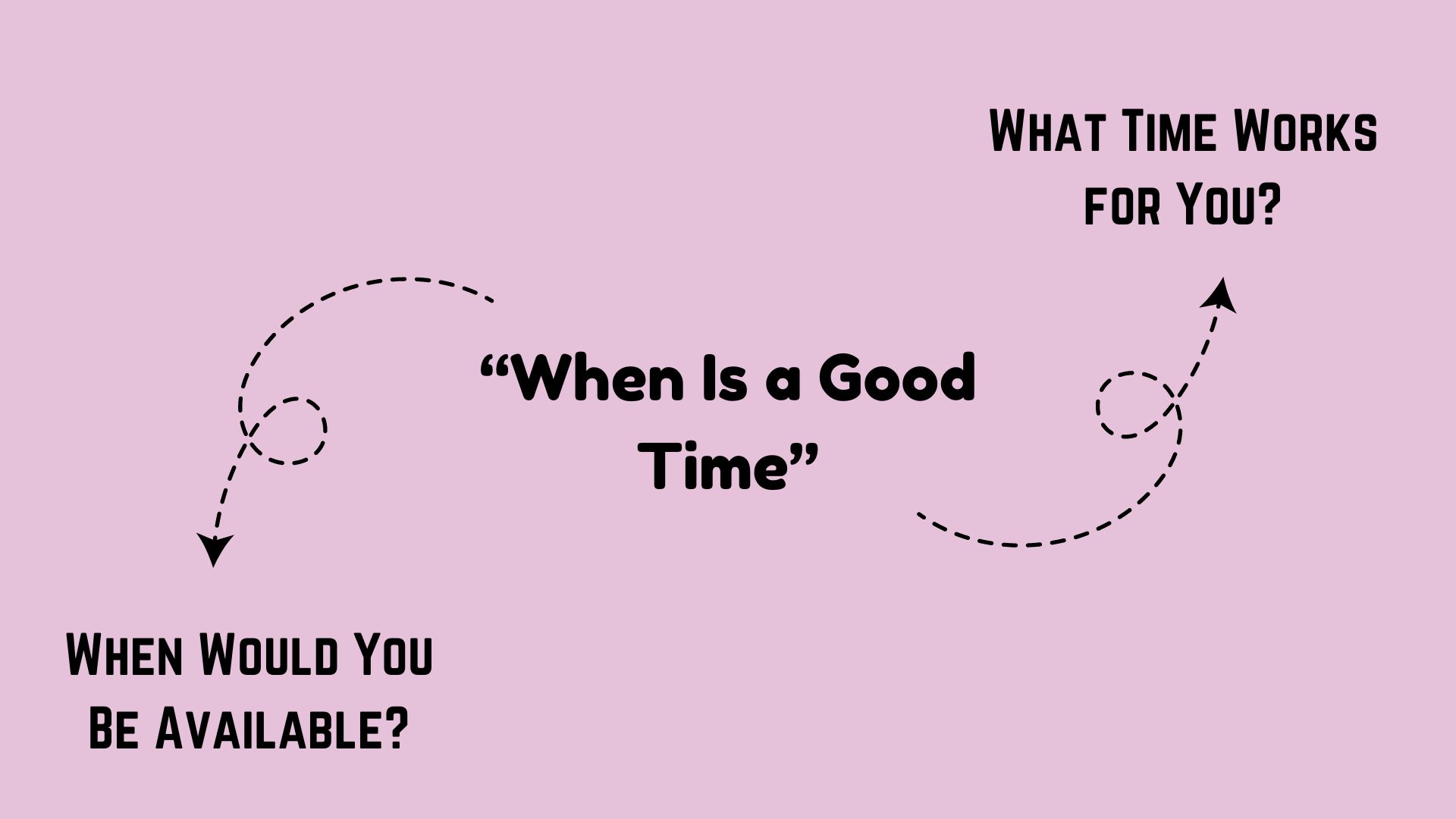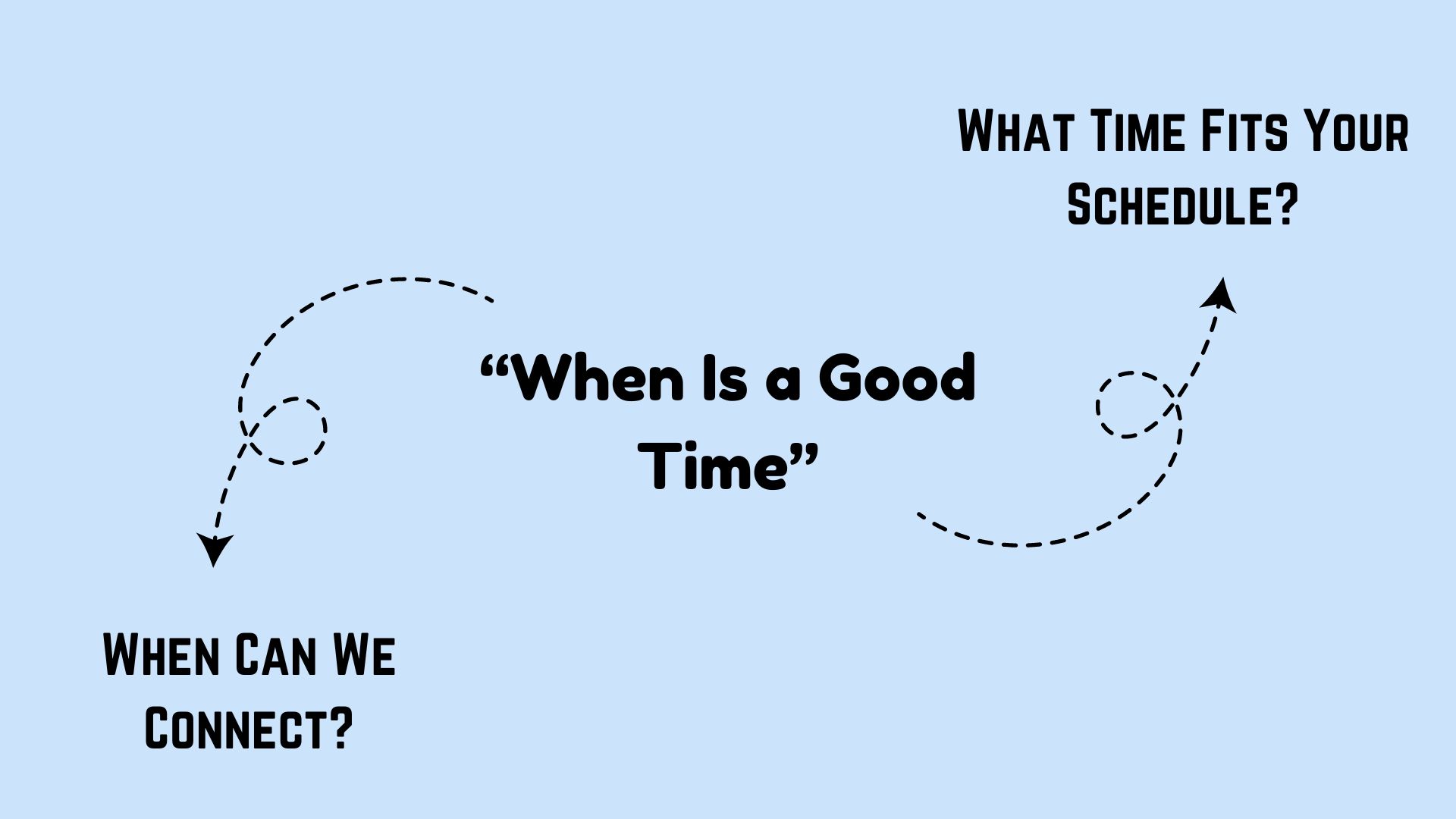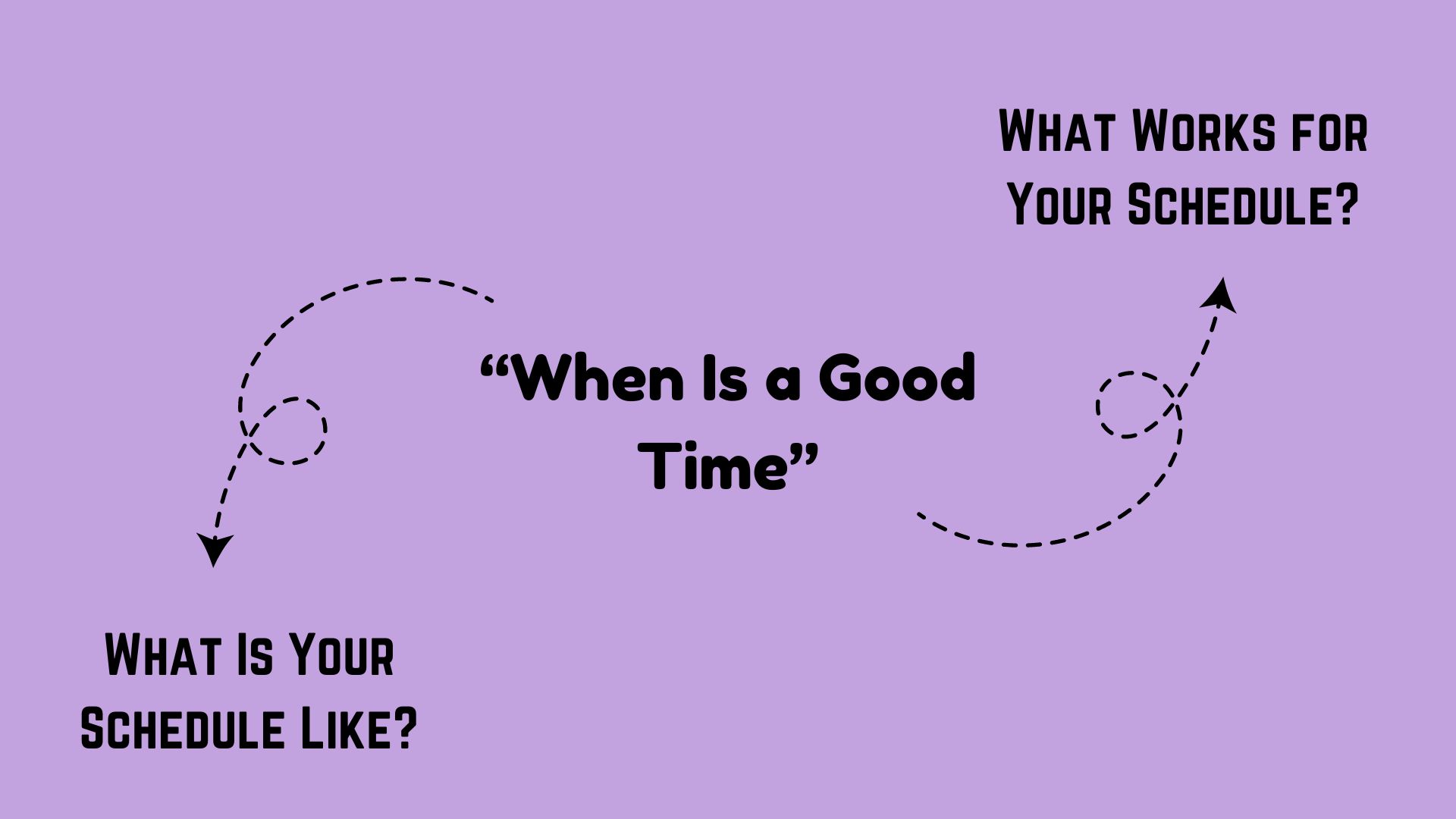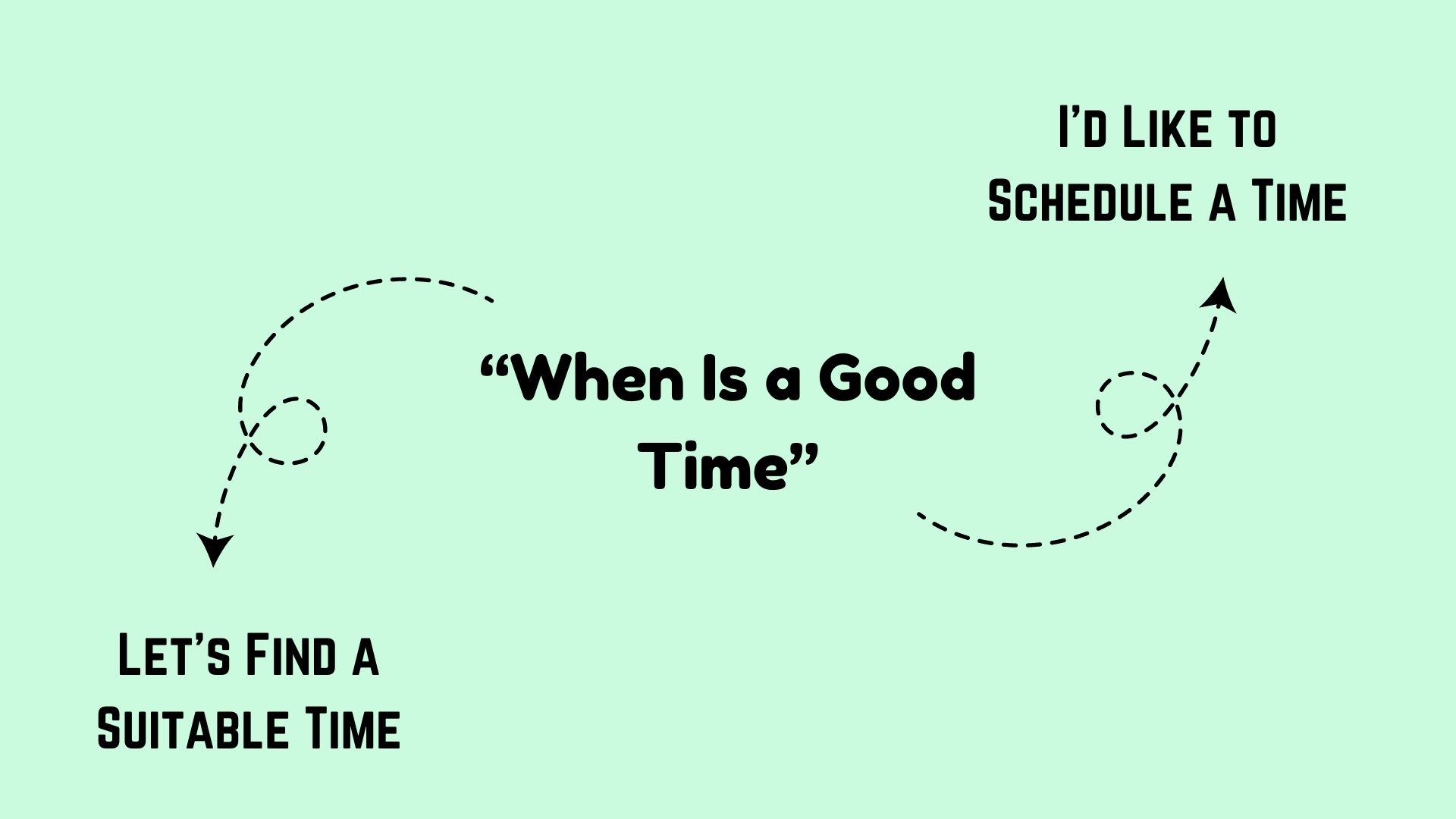Asking someone about their availability is a common need in professional communication. Here are 23 ways to say “When is a good time?” in a professional context, each with an example and specific use case.
1. What Time Works for You?
Example: “What time works for you to discuss the project updates?”
Use Case: When scheduling a meeting and seeking the other person’s availability.
2. When Would You Be Available?
Example: “When would you be available for a quick call?”
Use Case: When you want to know the best time for a brief discussion.
3. Could You Let Me Know Your Availability?
Example: “Could you let me know your availability for next week’s meeting?”
Use Case: When asking for someone’s schedule to plan an upcoming meeting.
4. What Is a Convenient Time for You?
Example: “What is a convenient time for you to meet?”
Use Case: When you want to ensure the meeting time fits the other person’s schedule.
5. When Can We Schedule a Time to Talk?
Example: “When can we schedule a time to talk about the details?”
Use Case: When proposing to set a specific meeting time.

6. Please Share Your Preferred Times
Example: “Please share your preferred times for our discussion.”
Use Case: When asking someone to suggest when they’d like to meet.
7. What Time Is Best for You?
Example: “What time is best for you to go over the report?”
Use Case: When wanting to find the most suitable time for a conversation.
8. Let Me Know When You’re Free
Example: “Let me know when you’re free to discuss the agenda.”
Use Case: When allowing someone to choose their preferred time.
9. When Would Be a Good Time for You?
Example: “When would be a good time for you to catch up?”
Use Case: When inquiring about a suitable time for a follow-up meeting.
10. Can We Set a Time That Works for You?
Example: “Can we set a time that works for you to review the proposal?”
Use Case: When trying to coordinate a meeting around someone’s schedule.

11. What Time Fits Your Schedule?
Example: “What time fits your schedule for a check-in?”
Use Case: When asking for a time that aligns with their commitments.
12. I’d Like to Know Your Available Times
Example: “I’d like to know your available times for next week.”
Use Case: When seeking to gather options for scheduling.
13. When Can We Connect?
Example: “When can we connect to discuss the next steps?”
Use Case: When proposing a conversation to clarify future actions.
14. What Works for Your Schedule?
Example: “What works for your schedule in the coming days?”
Use Case: When looking to fit a meeting into someone’s existing plans.
15. Please Let Me Know When You’re Available
Example: “Please let me know when you’re available for a follow-up.”
Use Case: When asking for someone’s availability without rushing them.

16. When Is a Good Time for Us to Meet?
Example: “When is a good time for us to meet regarding the new project?”
Use Case: When discussing specific topics that require face-to-face time.
17. What Is Your Schedule Like?
Example: “What is your schedule like next week for a discussion?”
Use Case: When wanting to gauge their overall availability.
18. Can We Find a Time That Works?
Example: “Can we find a time that works for both of us to meet?”
Use Case: When negotiating a meeting time that suits both parties.
19. Let’s Coordinate Our Schedules
Example: “Let’s coordinate our schedules to set up a meeting.”
Use Case: When aiming to align both calendars for an appointment.
20. I’d Like to Schedule a Time
Example: “I’d like to schedule a time that suits you for our call.”
Use Case: When expressing a desire to arrange a call based on their convenience.

21. Please Suggest a Time That Works
Example: “Please suggest a time that works for you, and I’ll adjust my schedule.”
Use Case: When inviting someone to propose their preferred timing.
22. When Would Be Most Convenient for You?
Example: “When would be most convenient for you to have this discussion?”
Use Case: When considering the other person’s ease and comfort for a meeting.
23. Let’s Find a Suitable Time
Example: “Let’s find a suitable time to discuss the feedback.”
Use Case: When looking to identify a mutually agreeable time for a conversation.
These alternatives provide various professional ways to ask about someone’s availability, ensuring clear communication while respecting their time.

